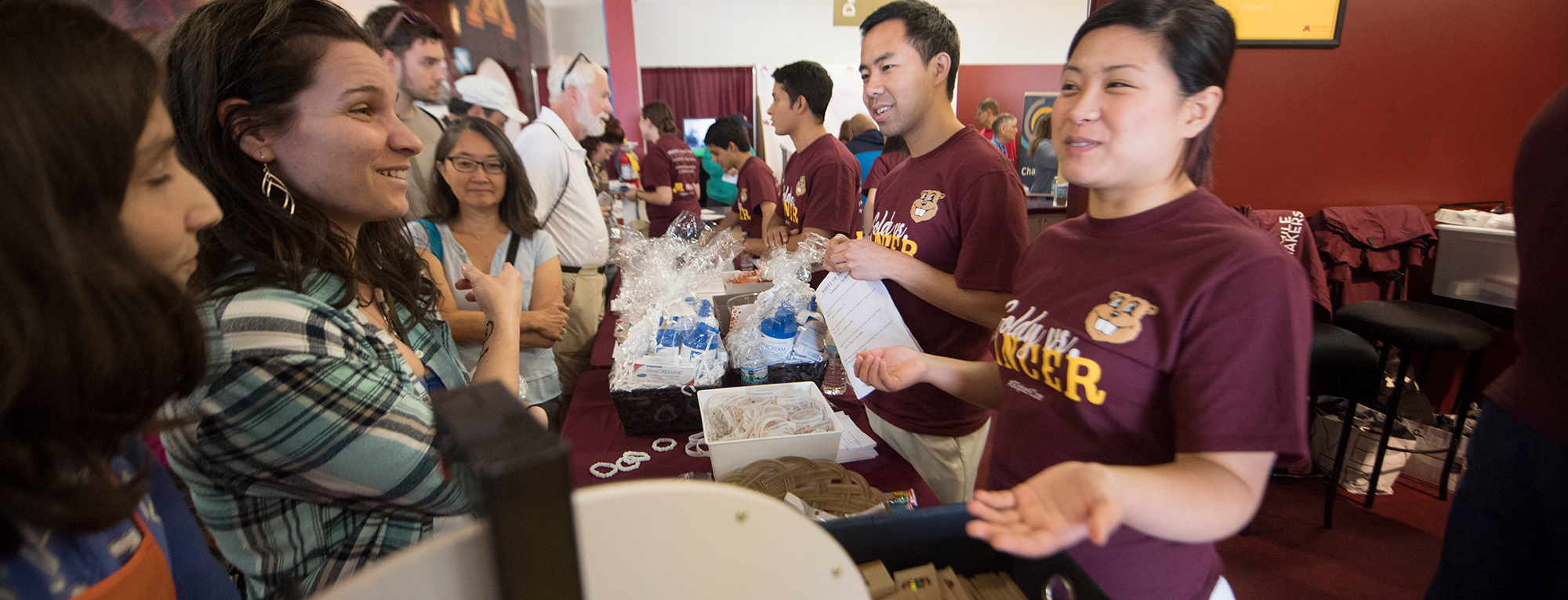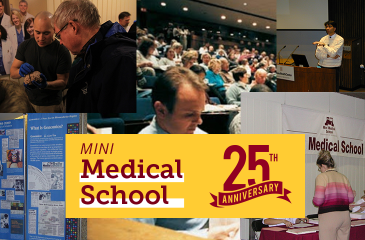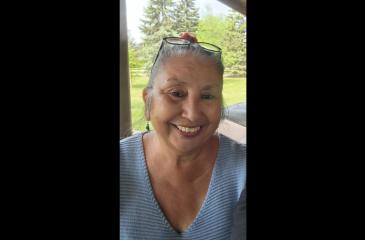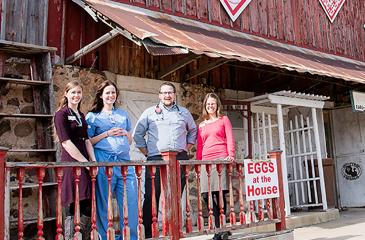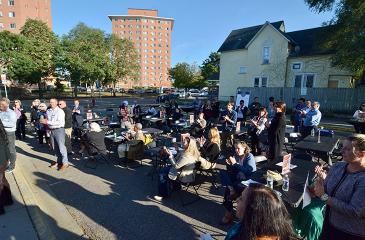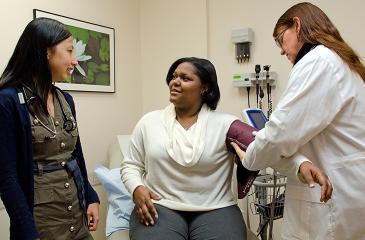Outreach
One of the most critical advantages we have as a University is our ability to connect and interact with people from different backgrounds and lived experiences. Bringing unique understanding and expertise together in new, creative ways is key to improving health and health care.
Feature:
Mini Medical School
Launched in 1999, Mini Medical School is a long-standing community outreach and education program that features fascinating faculty in the health sciences sharing their expertise on timely health topics and is designed to appeal to staff, students, faculty, and the community. Mini Medical School is offered each spring and fall, and is open to everyone.
Outreach Activities:
The Center for Bioethics fosters public discussion about ethical issues through community engagement activities. Every fall and spring, the center offers Ethics Grand Rounds, the emerging bioethics research series, and other public symposia. The center engages news media in coverage of current events related to bioethics. Members of the center’s faculty work to promote ethical health policy, including ethics guidance for public health emergency plans for the state of Minnesota, oversight of emerging stem cell therapies, and work on health disparities and access to care for underserved populations.
The Center for Global Health and Social Responsibility facilitates transdisciplinary partnerships and collaborations across the University and worldwide to create a global portfolio of research, education, and engagement. Their outreach and engagement programs champion sustainable and equitable global health efforts focused on current and emerging health needs.
CTSI’s Community Engagement to Advance Research and Community Health (CEARCH) provides an infrastructure for researchers to address health issues in ways that are truly relevant to the community. CTSI can help connect University researchers to community collaborators and get funded for community-University partnerships.
Researchers can access CTSI’s Community Research Van, designed to help research teams and community partners conduct health studies out in the community, or disseminate community-based research.
Community-University Health Care Center (CUHCC) opened its doors in 1966 to provide primary care services to children and low income families in South Minneapolis. CUHCC serves almost 12, 000 patients a year through over nearly 60,000 visits annually. The patient population comes from over 12 different racial and ethnic groups that span five continents. CUHCC provides medical care, dental care, mental health care, legal services, advocacy for domestic abuse and sexual assault, and much more—all in one place.
Minnesota Northstar GWEP serves Minnesota’s older adults, their families, and their caregivers. The program undertakes a critically important, much-needed mission—one that will call upon the passion and dedication of hundreds of providers and personnel in order to take vital steps toward ensuring Age-Friendly health care across Minnesota.
The work of the Institute for Health Informatics encompasses a variety of settings from tertiary care hospitals to specialty clinics, mental health facilities, community clinics, nursing homes, and home care agencies. The institute fosters engagement with community and international partners in applying biomedical health informatics to improve health and health care.
The Institute for Engineering in Medicine Inspire Program seeks to inspire students ranging from 8th-graders to high school students to those in junior college, to pursue future careers in applying STEM to medicine and health care delivery, and to pursue educational pathways that would help them to achieve those career objectives.
The mission of the Masonic Cancer Center’s Community Engagement and Education Program is to reduce the burden of cancer in Minnesota by engaging communities and providing them access to knowledge and information about cancer prevention, treatment, survivorship, and clinical research opportunities.
The Masonic Institute for the Developing Brain works with communities to ensure that critical supports are available for early intervention and treatment of neurodevelopmental disabilities in childhood and adolescence and that social supports are available throughout the lifespan.
OACA provides leadership of this health sciences-wide effort to provide urgently needed community care initiatives to reduce health disparities.
Designed to positively impact — in clear and measurable ways — the health and wellbeing of people and communities in rural Minnesota.
